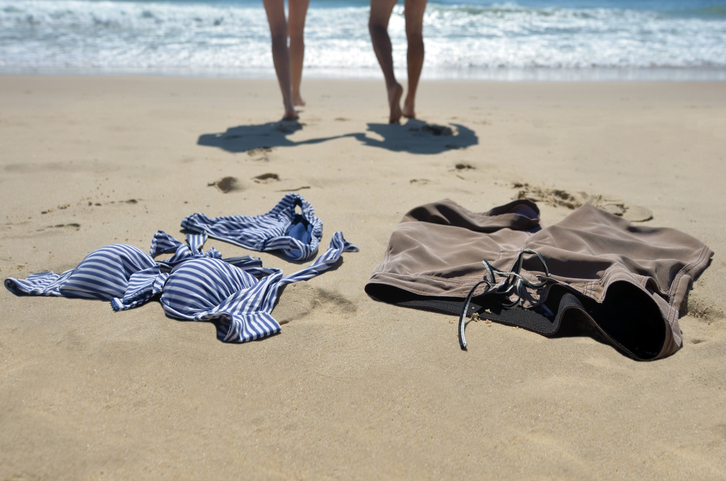bare
(adjective, verb)
/bɛr/
 LISTEN
LISTEN


If something is bare, it means that it has nothing covering it. When we are talking about parts of the human body, it means they are not covered by clothes. If a room in a house is bare, it means that it doesn’t have the usual furnishings. Figuratively, we use it to talk about unadorned and rather plain things. Bare also means ‘minimum’ and also ‘only or not more than.’ As a verb, to bare means ‘to show or uncover’ or, when we are talking about information, ‘to let something be known.’
Example sentences
- It was winter and all the trees were bare.
- Linda was wearing shorts and a T-shirt and enjoying the warmth of the sun on her bare arms and legs.
- The movers had taken the furniture and Joe checked the bare rooms one last time before locking the door and saying goodbye to the old house.
- The room was simple with bare walls and floorboards.
- The family was poor and could only afford the bare necessities of life.
- It takes a bare fifteen minutes to get there.
- The dog bared its teeth.
- The man was a stranger, but by the end of our conversation, he had bared all his secrets to me.
Words often used with bare
with your bare hands: without any tools or without a weapon. Example: “There were people trapped in the crashed car, but fortunately, Nancy managed to wrench one of the doors open with her bare hands and get them out.”
barefoot: without any shoes or socks on. Example: “The young woman kicked off her uncomfortable shoes and walked home barefoot.”
In pop culture
British singer Joss Stone often performs barefoot, as she finds it is easier to keep her balance when she gets carried away by the music. You can see her performing her song “Molly Town” here:
Did you know?
Joss Stone is not the only person to prefer pursuing her career barefoot. Zola Budd, an athlete who competed in the Olympics, for Britain in 1984 and for South Africa in 1992, usually ran barefoot, as you can see in this clip:
Don't confuse it with
Don’t confuse bare with bear. They sound the same, but are spelled differently. A bear is a large mammal and, as a verb, bear means ‘to support or carry.’
Origin
Bare dates back to before the year 900. The Old and Middle English adjective bær (pronounced bare), which meant ‘naked, uncovered or unclothed,’ can be traced back to the Proto-Germanic bazaz and the Proto-Indo-European root bhoso– (naked). It is related to the Armenian bok (naked), the Old Church Slavonic bosu and the Lithuanian bāsas (barefoot), the Old Frisian ber, the Dutch baar, the Old Saxon, Old High German and German bar, the Old Norse berr and the Russian bos (all meaning ‘bare’). The meanings ‘sheer’ and ‘absolute’ appeared around the year 1200, on the figurative notion of something ‘complete in itself.’ The verb comes from the adjective, and also dates back to before the year 900, as the Old English bārian or bærian, and later the Middle English bāren.
Word of the Day is released Monday through Friday.



